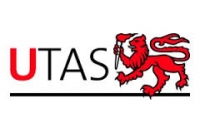This on-campus 5-year full-time course is offered by the Tasmanian School of Business and Economics and the Faculty of Law and is available at Hobart. The first year only is also offered at the Launceston and Cradle Coast campus. This course may be studied part-time.
The objectives of the combined degree courses are those of the component degrees. Reference should be made to the Bachelor of Economics and Bachelor of Laws course entries.
The Bachelor of Laws course is the basic academic preparation for persons who wish to enter the legal profession and other careers involving legal work. The course also has wider applicability in developing the attributes and skills inherent in a general university education. Students develop the values and intellectual abilities necessary to marshal facts and to critically assess and evaluate information, theories and doctrines thus preparing themselves for a variety of career roles.
Graduates of combined degrees could expect to find open to them all the career paths that are open to graduates of the component degree courses.
A law degree is a prerequisite to admission as a legal practitioner. Today, however, employers from a widening range of disciplines value the skills that law graduates possess. A range of career choices lie open to law graduates as a solicitor, barrister, industry legal officer or ministerial adviser, as well as in legal aid, community legal centres, the Attorney-General's department, law reform commissions, consumer affairs, environment, foreign affairs, police, legal drafting, politics, banking, finance, journalism, publishing and teaching.
The Bachelor of Economics degree opens up many career opportunities. Past graduates have established careers in a wide range of activities: some examples include: central banking, commercial consulting, commercial banking, local government, administration, management, market research, merchant banking, political advising, stockbroking and teaching.


